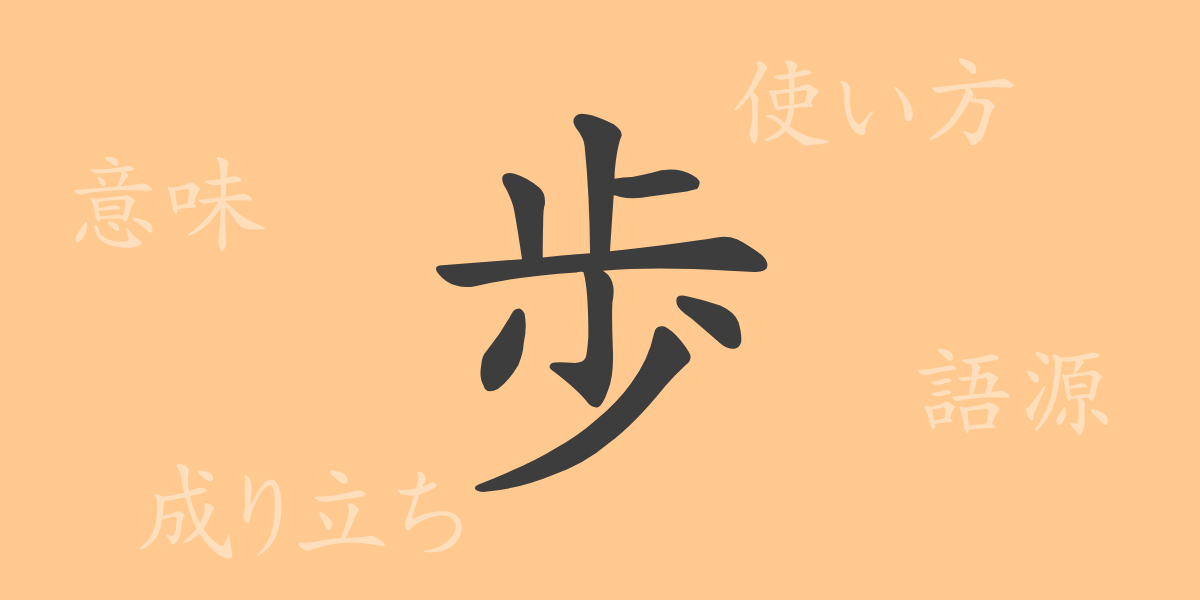In Japanese, there are thousands of kanji characters, each with its own unique history and meaning. In this article, we focus on one of the commonly used kanji, “歩” (ho), exploring its etymology, modern usage, and even idioms and proverbs that feature this character. “歩” (ho) is a character frequently used in daily life, and within its simplicity lies profound meaning. Walking symbolizes life itself and is closely tied to our culture. Let’s trace the journey of “歩” (ho) together.
Etymology of 歩 (ho)
The kanji “歩” (ho) is composed of “止” (shi), which means foot, and “少” (shou), which means a little. From this combination, the meaning “foot moving little by little” was born. Its original form can be seen in ancient Chinese oracle bone script, symbolically representing the basic action of walking. Over time, it has come to include more abstract meanings, being used to signify progress and change.
Meaning and Usage of 歩 (ho)
The kanji “歩” (ho) is primarily used in words related to the action of walking, but it also extends to concepts related to progress and the manner of proceeding, such as in “進歩” (shinpo, progress), “歩度” (hodou, pace), and “歩調” (hochou, rhythm). In daily life, it is also used metaphorically to indicate significant changes brought about by taking a single step.
Readings, Stroke Count, and Radical of 歩 (ho)
The kanji “歩” (ho) has several readings in Japanese, which vary depending on its usage.
- Readings: On’yomi (音読み) is “ホ” (ho), and Kun’yomi (訓読み) are “ある.く” (aru.ku) and “あゆ.む” (ayu.mu).
- Stroke Count: It consists of 8 strokes in total.
- Radical: The radical is “止” (tomebu).
Idioms, Proverbs, and Expressions Using 歩 (ho)
There are numerous words and expressions that include the kanji “歩” (ho). Below are some idioms, proverbs, and their meanings.
- 進歩 (shinpo): Refers to the act of moving forward. It signifies development and improvement.
- 一歩 (ippo): Literally means a single step, but it can also metaphorically indicate a small advancement or change.
- 歩合 (buai): Refers to remuneration based on results. It indicates a salary or wage based on sales performance.
- 歩む (ayumu): Means to proceed. Metaphorically, it is also used to mean living one’s life.
- 千里の道も一歩から (senri no michi mo ippo kara): A proverb meaning that even a journey of a thousand miles begins with a single step. It teaches that no matter how difficult the task, the first step is crucial.
Summary of 歩 (ho)
The commonly used kanji “歩” (ho) not only represents a basic action in our daily lives but also symbolizes abstract concepts like progress and development. Despite its simple form, it is an important kanji used in many words and expressions. Understanding kanji like “歩” (ho) is key to grasping the culture and ideas behind the language. We hope that through this exploration, you have gained some appreciation for the multifaceted nature and rich meanings of “歩” (ho).

























